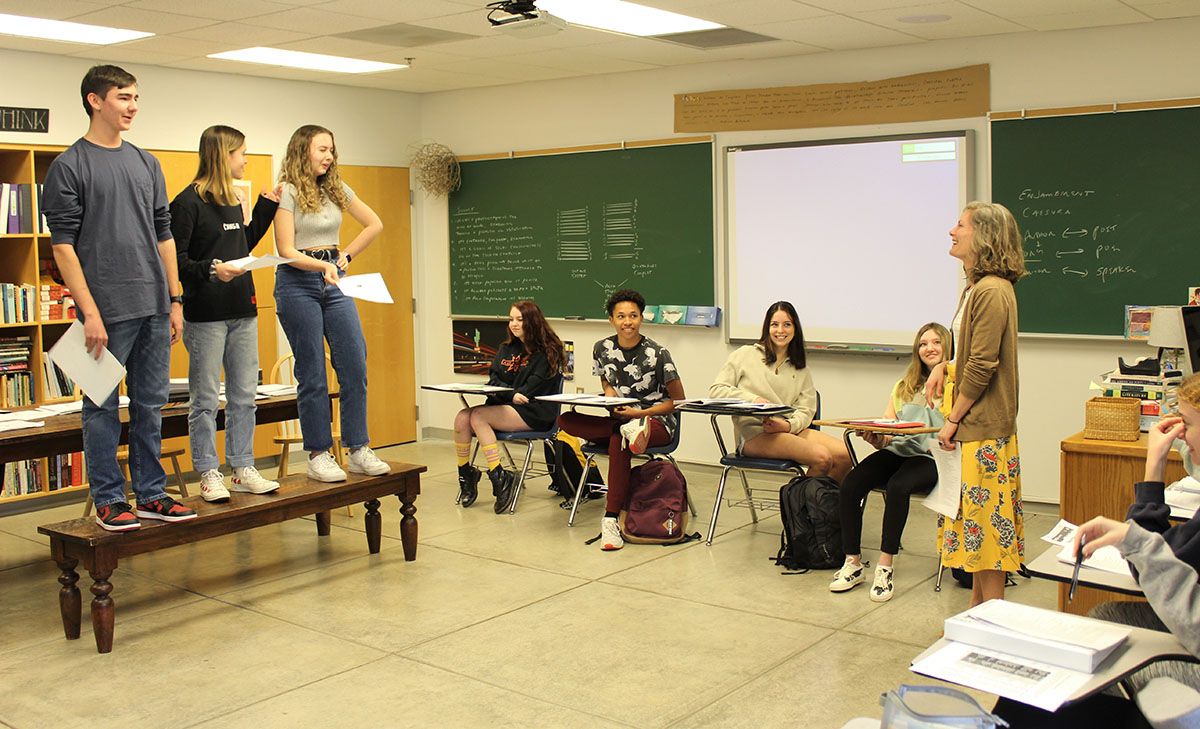
Why the English Department Asks Students to Memorize and Recite Poetry
by Elizabeth Young
Over a decade ago, the upper school English department decided to enroll our school in the National Poetry Out Loud Competition, adding an all-important element to a student’s study of poetry: recitation. Whereas most literary forms can be studied and appreciated within the quiet of one’s mind, poetry is about sound as much as it is about sense. Poems are intended to be spoken out loud because they house acoustic subtleties that the inner-ear can’t always appreciate.
Reciting from memory the words of another person can be an intimidating experience, but we often grow the most when asked to get outside our comfort zones.
Reciting from memory the words of another person can be an intimidating experience, but we often grow the most when asked to get outside our comfort zones. Poetry recitation fosters courage as much as it fosters communication skills. Last year, one of our seniors confessed that he never felt like a convincing communicator. Whether he was in the classroom, around friends, or even with family, he felt inarticulate. However, he said that one day every year for the past four years, he didn’t have to worry about words. Instead, he got to speak the perfect words of another person by reciting from memory a simple, small, precise poem to his classmates. And that’s what this tradition is all about: learning to speak words as convincingly as possible, whether they’re yours or not.
The words themselves matter much more than the recitation of them, which is why we ask our students to select their poems carefully. The literary critic George Steiner responds to this when he writes, “To learn by heart is to afford a text an indwelling clarity and life-force…. What we know by heart becomes an agency in our consciousness, a ‘pace-maker’ in the growth and vital complication of our identity…. Accurate recollection not only deepens our grasp of the work: it generates a shaping reciprocity between ourselves and that which the heart knows” (Real Presences 9).
For all of these reasons and more, January is my favorite month in the English classroom.

"Teaching at The Gregory School has allowed me to know hundreds and hundreds of interesting students, whose curiosity and skepticism have spurred my own scholarship. Because of them, I get to play the part of student as much as teacher."
Elizabeth Young holds an M.Ed. in Educational Leadership from Northern Arizona University and a B.A. in English and Art History from Hillsdale College. She was appointed to The Gregory School faculty in 2002.